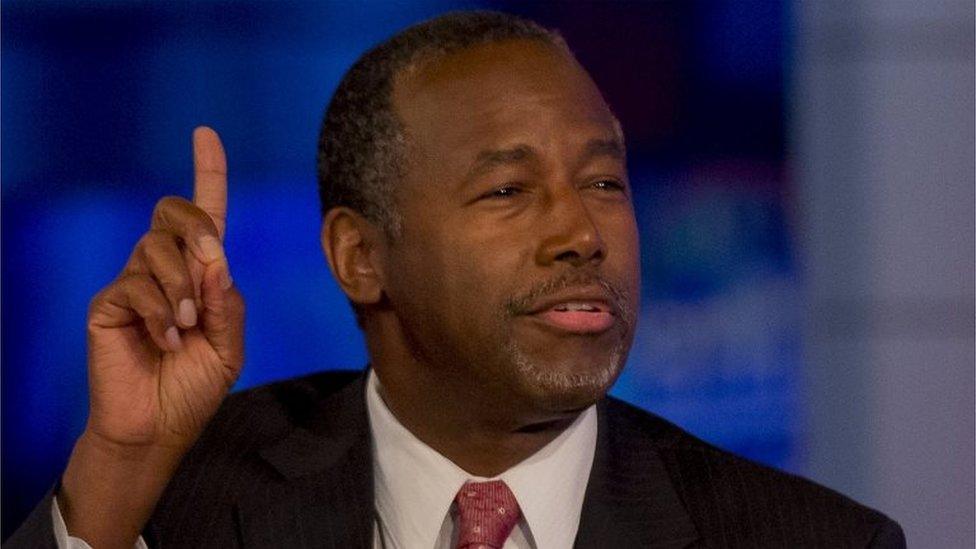Ben Carson stands by stories of childhood rage
- Published
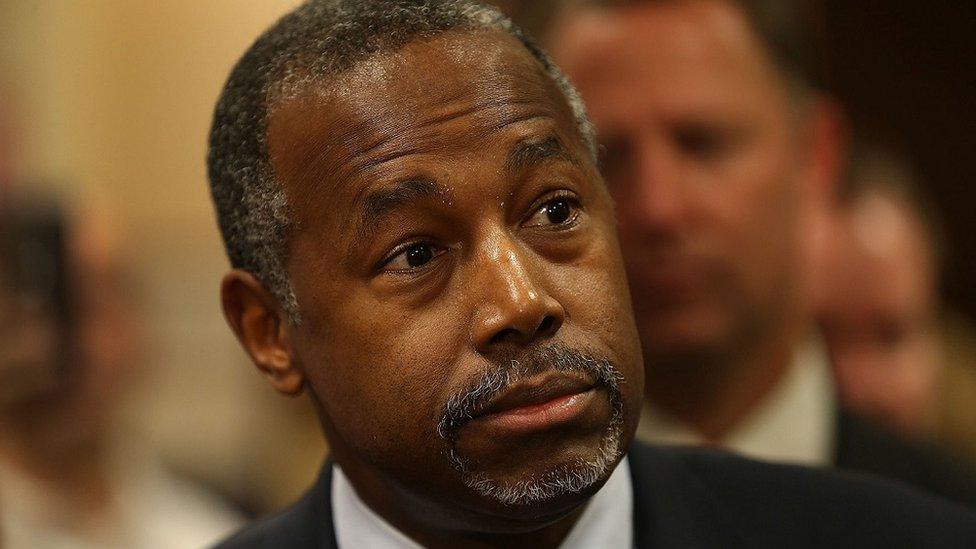
Ben Carson is increasingly on the defensive over stories he has told about his troubled childhood in his autobiography, Gifted Hands: The Ben Carson Story.
On Friday his campaign backed away from his claim that he had been admitted to the prestigious US military academy at West Point. Mr Carson, however, continues to stand by his assertion that as a teenager he tried to stab a relative, angrily denouncing what he says is liberal bias in a CNN investigation, external that found no corroborating witnesses to the event.
In a presidential campaign season that has been anything but ordinary, the latest kerfuffle over Mr Carson's childhood stories places American politics firmly in bizarro-world.
"Ben Carson defends himself against allegations that he never attempted to murder a child," reads, external the headline on a New York magazine article.
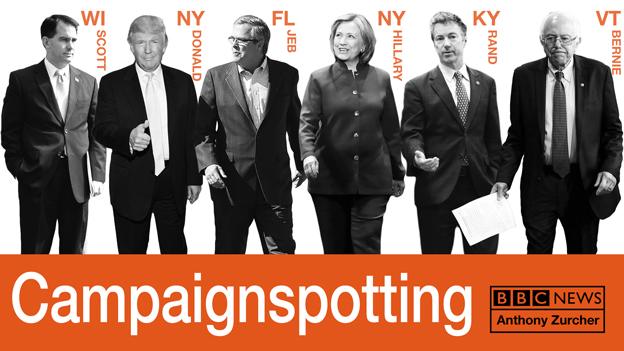
Usually a candidate faced with previously unrevealed evidence of youthful indiscretions - or worse - denies the charges. Such was the case with Republican nominee Mitt Romney in 2012, when reporters unearthed evidence, external that he bullied other students in high school.
Here, however, Mr Carson is asserting that recollections from childhood acquaintances that he was bookish and shy are mistaken. Instead he's testified to the veracity of examples of misbehaviour that he cites as evidence of his childhood temper, including that:
He tried to stab a "close relative" in the stomach and was unsuccessful only because his knife was blocked by a large belt buckle
His brother forcefully restrained him when he attacked his mother with a hammer during an argument over clothing
He punched a school classmate in the forehead, leaving the child bleeding profusely from a three-inch cut
He threw a rock at a boy's face, breaking his glasses and lacerating his nose
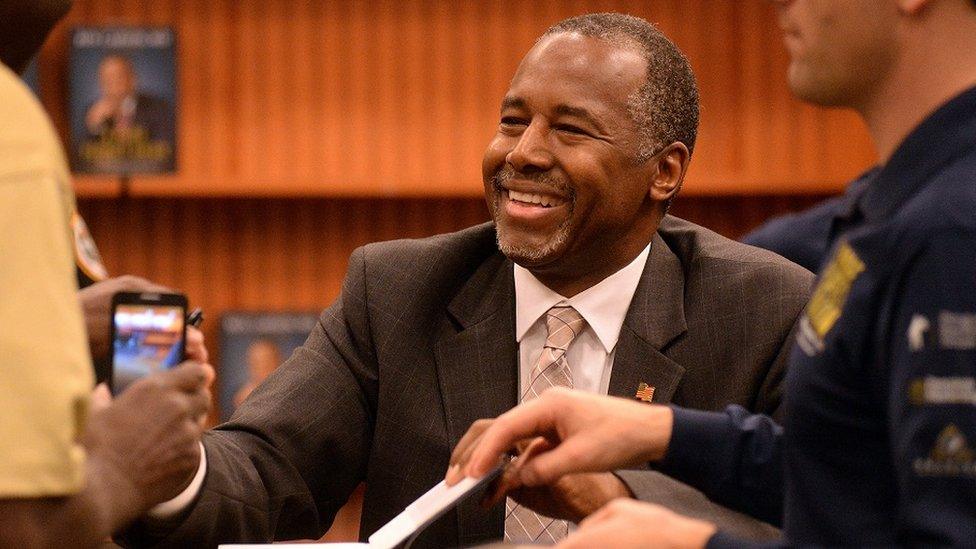
Ben Carson says he changed the names of those involved in childhood incidents recounted in his book to protect their identities
Mr Carson recounts these stories during speeches and in his autobiography as evidence that he was a misguided youth who only achieved success after a religious awakening. It's part of the narrative that has earned the renowned neurosurgeon a devoted following among the evangelical community for years and is one of the reasons why he has attracted strong support from voters in Iowa, a key battleground in the Republican nomination race.
A CNN report found no evidence backing up any of Mr Carson's claims, however - even those that Mr Carson said took place on school grounds. Mr Carson appeared on CNN Friday morning to defend himself, leading to a heated confrontation when network presenter Alisyn Camerota pressed him, external for further details.
"This is a bunch of lies attempting to say I'm lying about my history," Mr Carson said. "I think it's pathetic, and basically what the media does is they try to get you distracted."
He said the names he cited in his book were changed to protect friends and family members and that the "close relative" he tried to stab had recently told him not to reveal his identity.
"The story is well-documented," Mr Carson said. "If you choose not to believe it, if it doesn't fit the narrative that you want, that's fine. Let's let the American people decide."
Mr Carson later told a conservative radio programme that he intends to fight CNN "tooth and nail".
That may turn out to be a more difficult battle for Mr Carson, however, after another claim in Mr Carson's book was found questionable. Shortly after the CNN confrontation, Politico reported, external that the Republican had erroneously asserted that he had been accepted to the US military academy at West Point.
Carson campaign manager Barry Bennett told Politico that the candidate was a decorated high school ROTC member who had been encouraged to attend the academy but had never formally applied.
As polls show Mr Carson solidifying his position among the leaders of the Republican nomination battles reporters have been stepping up their investigations into Mr Carson's past - unearthing an old speech where he made claims about the true story behind the Egyptian pyramids and scouring his writings for apparent inconsistencies or untruths.
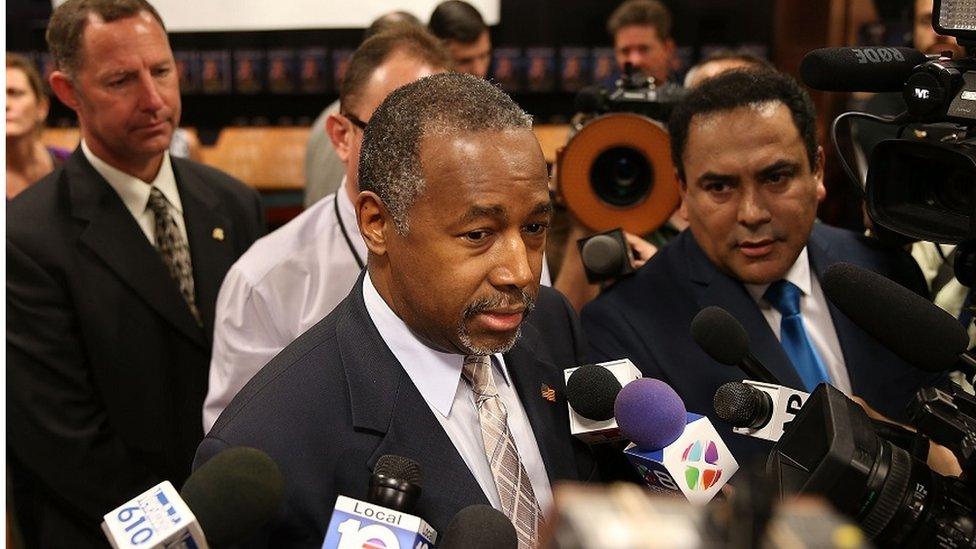
Ben Carson says he's going to fight CNN "tooth and nail" over its investigation into his past
It's a standard practice most politicians undergo, although Mr Carson's recent arrival onto the national stage means he hasn't been subjected to the kind of scrutiny more experienced candidates have weathered.
Whether any of this will adversely affect Mr Carson's standing in the Republican presidential race is an open question. The retired neurosurgeon has made condemnations of the media and "PC culture" a standard part of his campaign rhetoric, so he may already be immunised against perceived attacks from the mainstream press.
In last week's Republican debate on CNBC, a moderator who pressed Mr Carson to respond to allegations that he had close ties to a controversial nutrition supplement company was roundly booed by the partisan audience.
"They know," Mr Carson concluded.
And they very well may continue to stand by their man.
Candidates in (and out of) the Republican presidential field

- Published21 September 2015
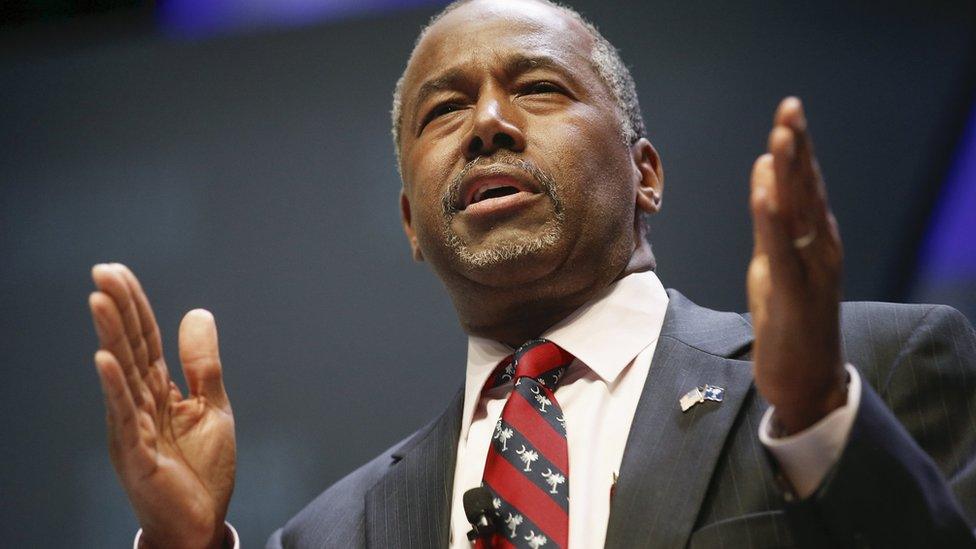
- Published9 October 2015
